Credit where credit is due: Mojang has made some incredibly smart bets about ways to expand the Minecraft franchise. Back when Microsoft announced its purchase of the studio and its monolithic IP, I struggled to imagine exactly what could be done with Minecraft beyond the base game. Sure, that would continue to expand and grow – but did people really want to do anything else in that universe?
At the time, I reasoned that it didn’t matter if the universe could expand or not. Minecraft alone was big enough and important enough that it was worth every penny of the $2.5 billion Microsoft paid for it. But then, something magical happened: Mojang kept making smart partnerships that expanded the universe in brilliant and often unexpected ways.
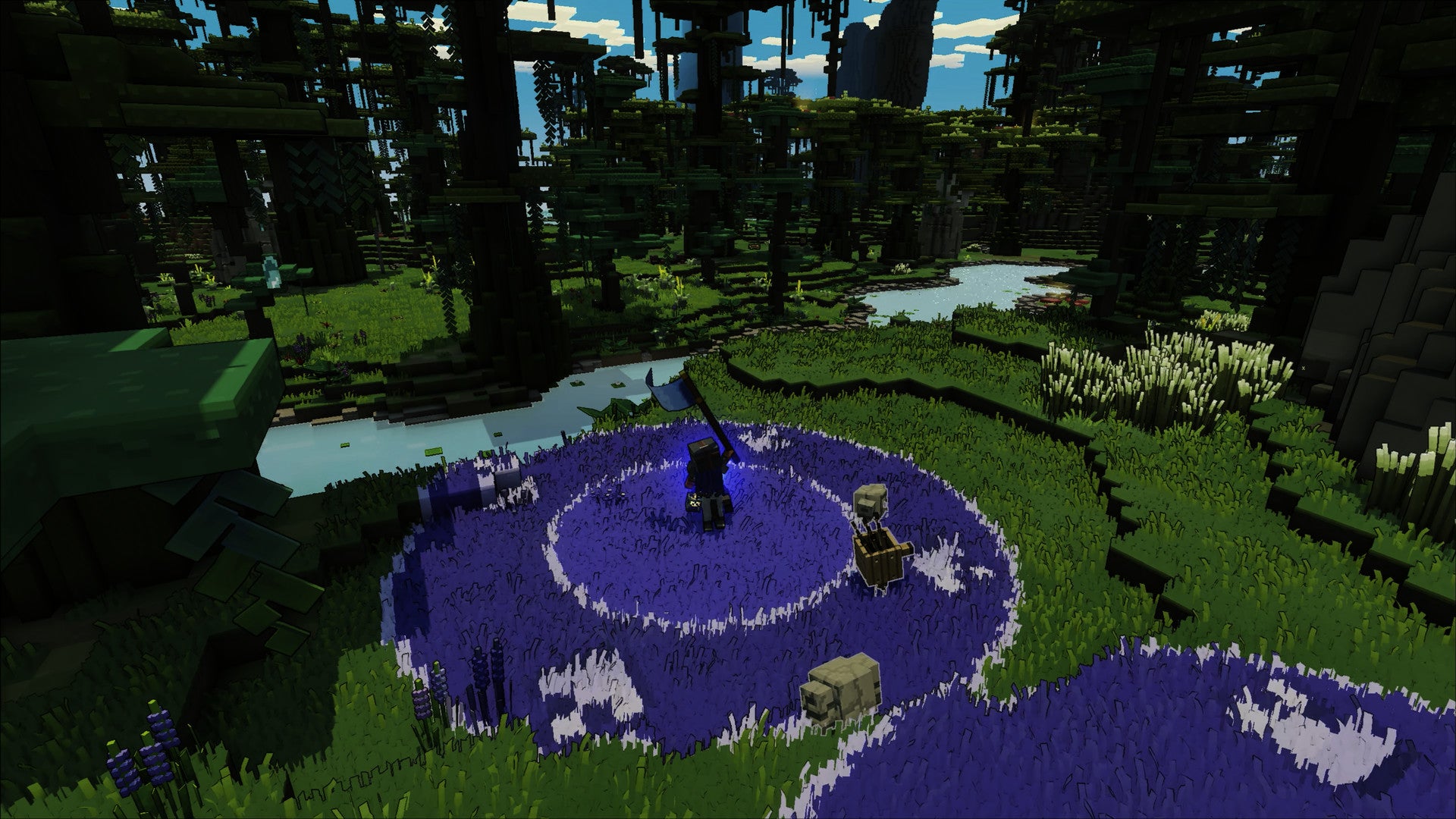
Lego Minecraft went from a one-off set for nerds to a fully-fledged series of toys, beloved by children everywhere. Minecraft Story Mode released its first episode not long after the acquisition, and then 2019’s Minecraft Dungeons, which was a truly brilliant pairing of the established traditions of Minecraft with a kid-friendly Diablo clone. The Pokemon Go-like Minecraft Earth was a swing-and-a-miss – but that was an AR mobile game that launched right before a pandemic locked everybody indoors – so I’ll give them a pass.
If Earth was a blip, Minecraft spin-offs seem to be firmly back on track with the upcoming Minecraft Legends. On paper, it’s does what Dungeons did for catacomb-crawling RPGs but for real time strategy games. And after seeing a half hour of the game in action, I’m super pumped to play the final thing.
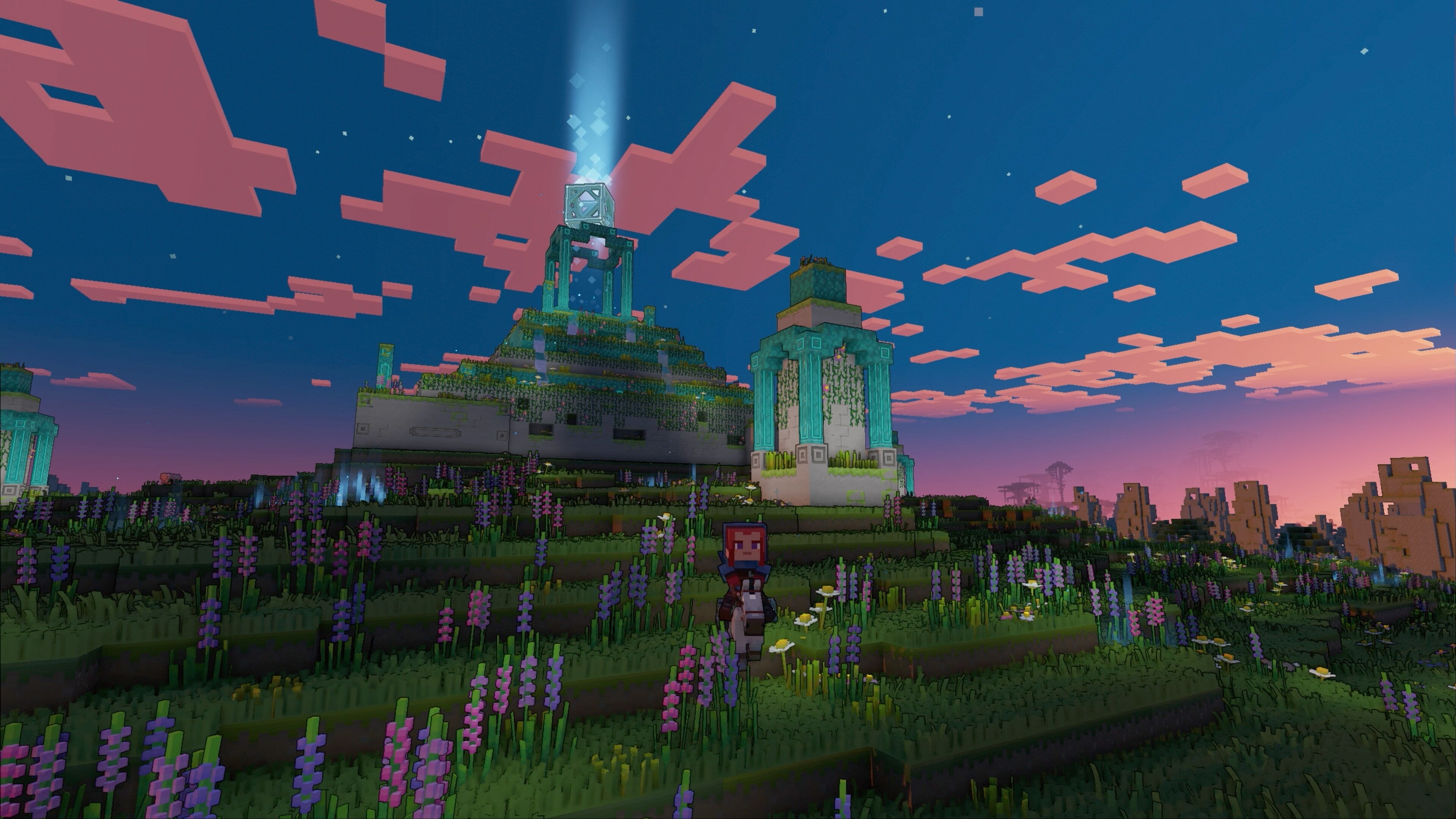
As a real-time strategy game, Legends isn’t perhaps what you might first imagine. There’s no Command & Conquer style birds-eye view of the battlefield, and you’re not a disembodied leader marshaling troops with the hand of god. Instead, at first blush, it looks like an adventure game. In fact, it looks like a slightly more beautified Minecraft, like the PC version with a bunch of weird mods installed.
Impressively, Legends is running in the same Bedrock Engine technology that powers the main game, though structurally it’s quite different. You’re both mining and crafting, but instead of picking apart individual rocks, you’re doing it on a more macro level. To get wood, for instance, you don’t have to go punch trees – you just point handy automatic mining buddies at a specific tree, and they’ll quickly dismantle the whole tree for you. The same is true of all other resources. Like I said, macro rather than micro.
The camera is drawn back to match that – so while much of the game looks superficially similar to Minecraft, you can instantly tell this is a game on a different scale. The world itself is still procedurally generated, however, so there’s still that element of random Minecraft magic.
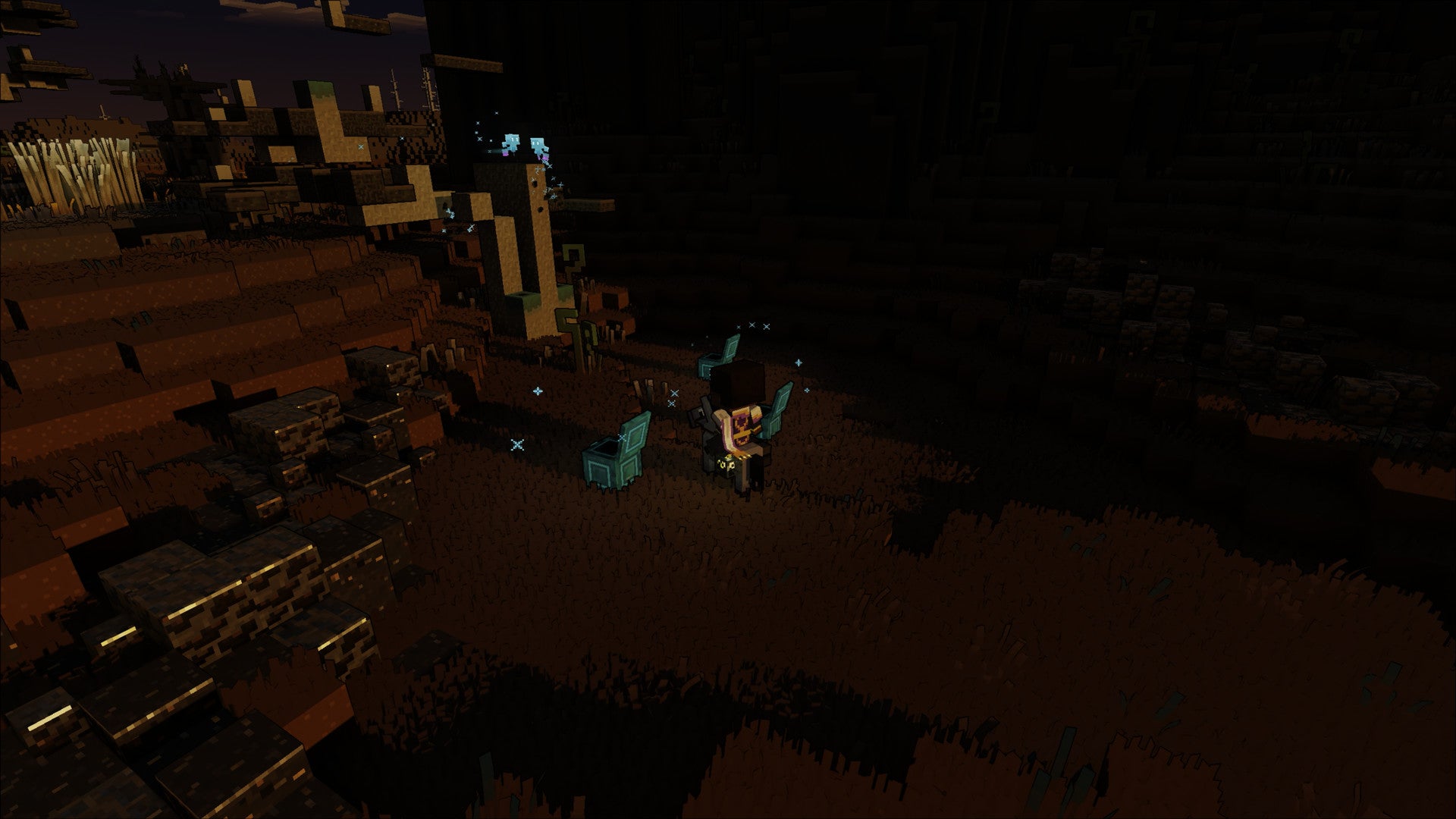
As this singular hero, you’ll be galloping across the world and gathering resources in an effort to raise an army that can quell an army from the Nether that’s attacking a world that has never been at rar before. Minecraft doesn’t really have a canon, of course, but the developers are selling this story as a ‘Legend’ that took place long before the status quo we know from the other games. In this time, Zombies are even sometimes friendly.
Scattered across the procedurally-generated world are bases and other objectives for you to take down in order to advance the war effort. And how do you do that…? Well, it works in a way that draws a most unexpected gaming comparison.
By which I mean… it’s like Brutal Legend. With a little dash of Pikmin. Bear with me here.
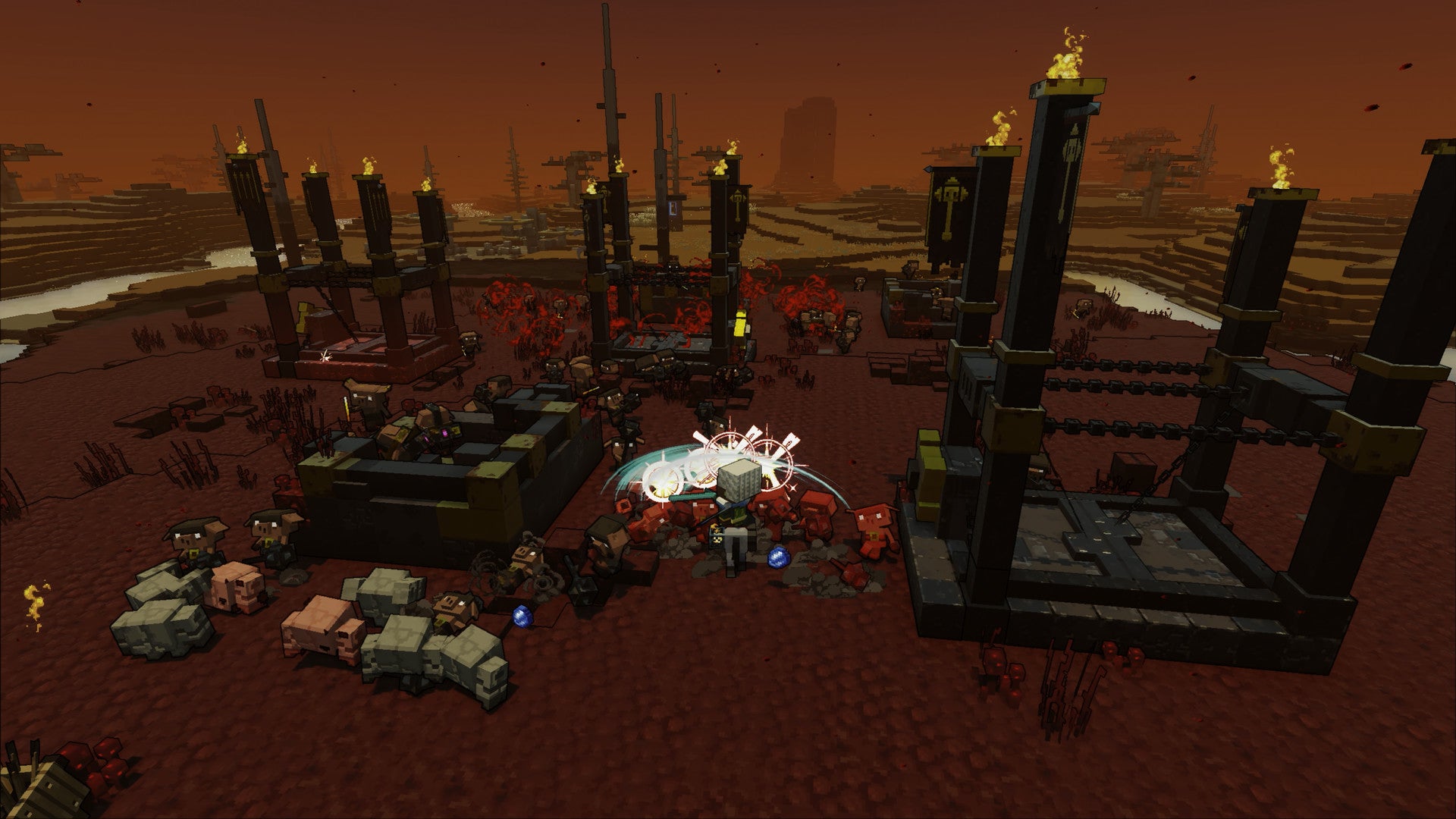
So, yes, that’s right, Brutal Legend – the Jack Black vehicle that begins as an action-adventure game that part-way through takes an interesting but perhaps ill-advised turn into a real-time strategy game played from a third person perspective. The protagonist of Minecraft Legends can erect various buildings using the resources gathered out in the world. Like mining, this crafting is macro rather than micro – so you build whole prefab structures with a single click, rather than brick-by-brick, but you retain complete freedom to place these structures where you like. Among these buildings are spawners, each of which is capable of creating a different type of unit. You then use the spawners to add to your army, with a population cap determining exactly how many troops you can field at any given time.
When the time comes to ride into battle, your minions will follow along, and then you can use rudimentary commands to have them focus on a specific thing. You might have a certain subset of troops attack something they’ll be strong against, while others hang back to protect them and you, for instance. This is where the Pikmin feeling comes in. But you can also get stuck in yourself, swixnging a sword from horseback to take out enemies. This is effective, but not the be-all, end-all, as you can be easily overwhelmed. In all of that, it sounds quite a bit on paper like Brutal Legend’s RTS segments.
Where it differs from Brutal Legend is in how it appears to play, however. Even watching one of that game’s RTS battles revealed its cumbersome, fiddly nature – and Minecraft Legends looks the opposite. It’s slick, fast-moving, and good-looking. It has controls easy enough for kids to understand, but a depth of strategy likely to create good multiplayer showdowns. Even hands-off, it looks manageable and smooth – which is exciting. Few RTS games have really nailed that down on console.
These battles are then backed up by the ongoing procedural Minecraft world, too. If you want a fast travel point, for instance, you’ll build a fort that will act as one. If you undertake an epic campaign against an enemy base, you might want to stop part-way through your conquest to build a new staging base, complete with defenses and spawners, before you push deeper into enemy territory. Battle, then build – one can see a to-and-fro pacing being outlined that could pull you through the game’s challenges seamlessly.
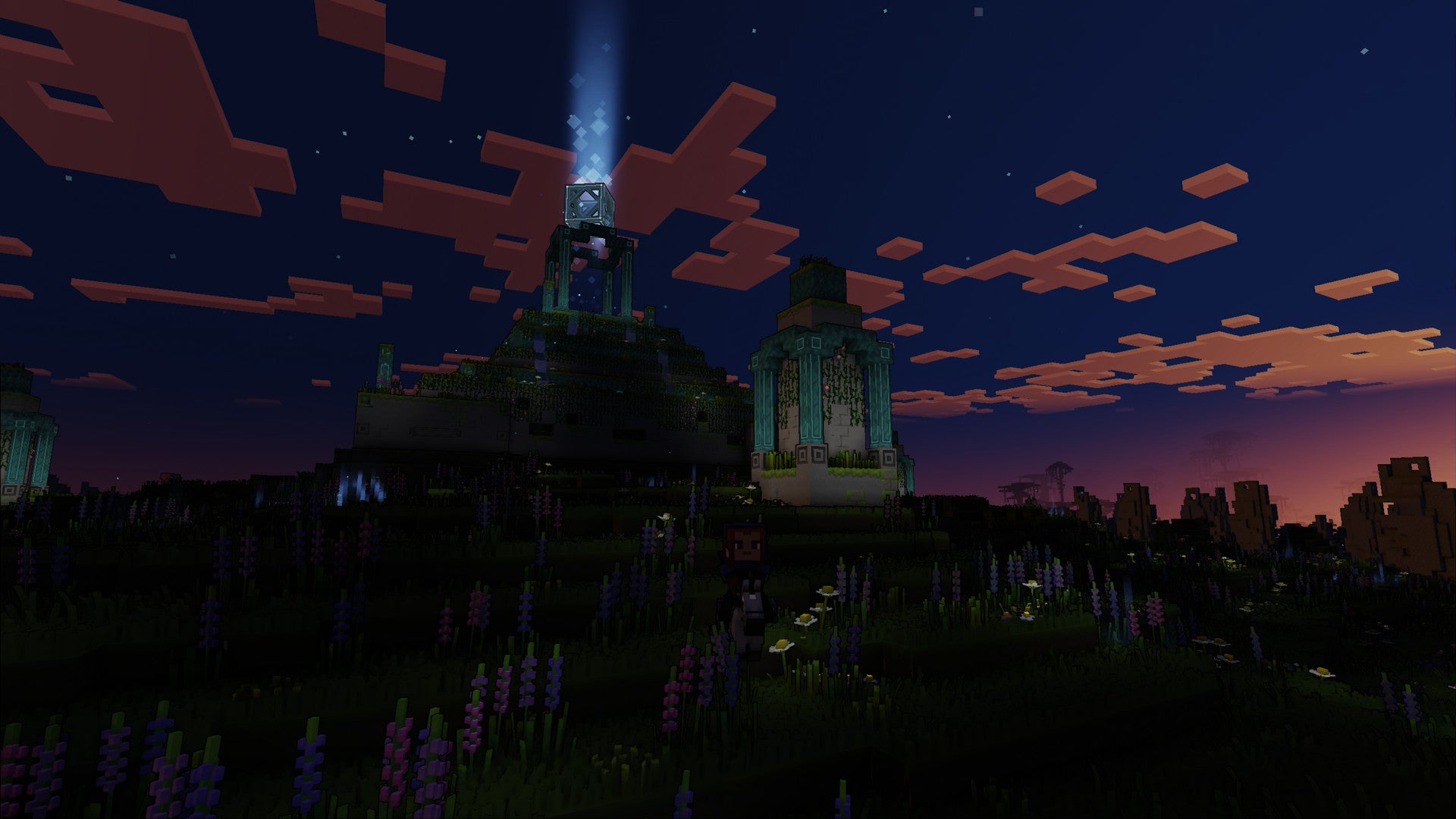
Hands-off demos are always tough. You never really know what a game is like until you play it, after all. But sometimes you see a game and the demo just sells you. You get it. Minecraft Legends is one of those games. It seems like a neat little kid and controller-friendly strategy romp – and I’m here for that. I’ve got my fingers crossed it’ll be competitively rich enough to support good online battles, too. Even if that’s not the case, however, Minecraft is effortlessly building its way into yet another genre – which in itself is impressive.

